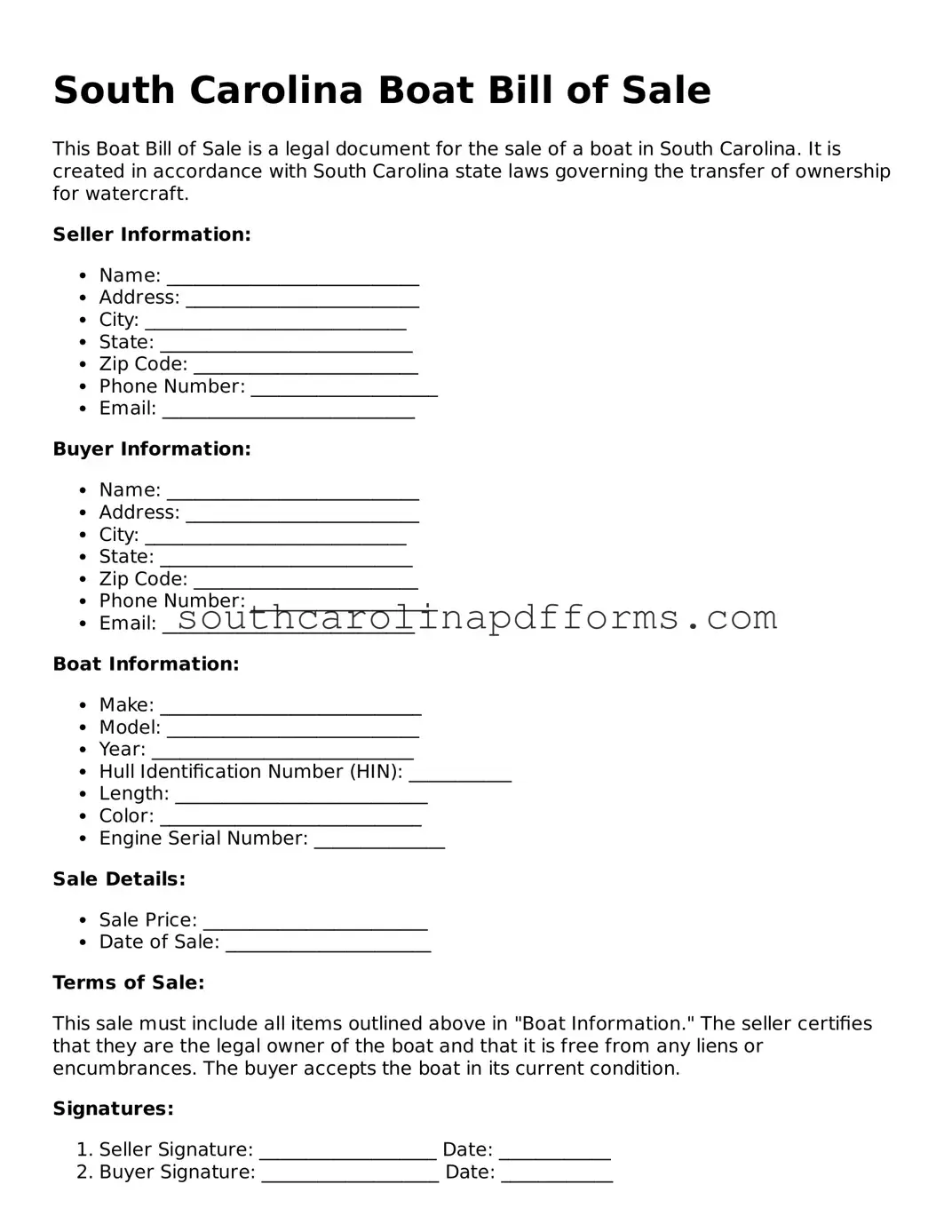When it comes to buying or selling a boat in South Carolina, having a well-drafted Boat Bill of Sale form is crucial for both parties involved in the transaction. This document serves as a legal record of the sale, providing essential information such as the names and addresses of the buyer and seller, a detailed description of the boat, and the sale price. Additionally, it may include important details like the boat's hull identification number, registration information, and any warranties or representations made by the seller. Ensuring that this form is completed accurately not only protects the interests of both parties but also helps facilitate a smooth transfer of ownership. In South Carolina, this form can also play a significant role in the registration process with the South Carolina Department of Natural Resources. By understanding the key elements of the Boat Bill of Sale, individuals can navigate the complexities of boat ownership with confidence and clarity.
